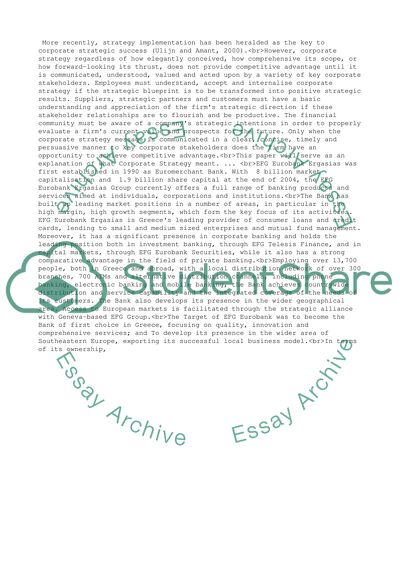Cite this document
(“EFG Eurobank Corporate Strategy Essay Example | Topics and Well Written Essays - 3500 words”, n.d.)
Retrieved from https://studentshare.org/business/1501957-efg-eurobank-corporate-strategy
Retrieved from https://studentshare.org/business/1501957-efg-eurobank-corporate-strategy
(EFG Eurobank Corporate Strategy Essay Example | Topics and Well Written Essays - 3500 Words)
https://studentshare.org/business/1501957-efg-eurobank-corporate-strategy.
https://studentshare.org/business/1501957-efg-eurobank-corporate-strategy.
“EFG Eurobank Corporate Strategy Essay Example | Topics and Well Written Essays - 3500 Words”, n.d. https://studentshare.org/business/1501957-efg-eurobank-corporate-strategy.


